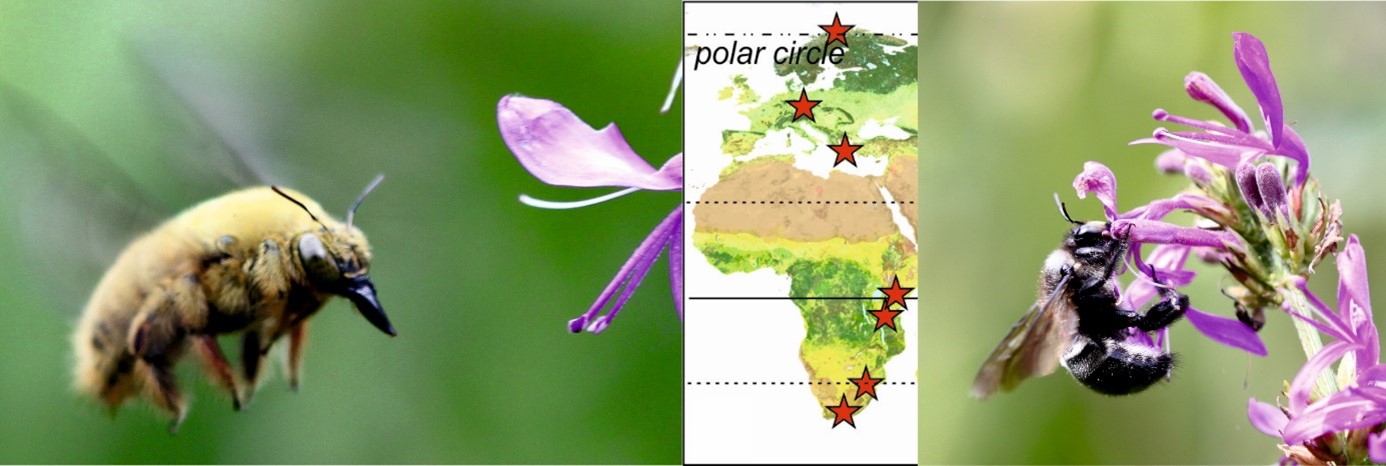This project will contribute to the elementary question of ecology, biogeography and evolution: Are niches of tropical species narrower than species in higher latitudes? The project will perform an intensive cross-continental study of latitudinal patterns of specialisation in plant-pollinator interactions. It will combine modern NGS metabarcoding analyses of pollen from bees, the most important pollinators in terrestrial ecosystems, with a standardised observational sampling of interactions at a whole-community level. Along a long latitudinal gradient, our group has already established seven study sites from temperate and subtropical South Africa, through the Afrotropics, up to Mediterranean, temperate and subarctic European ecosystems. From each study site and study season, we will metabarcode DNA from pollen loads of bees, and compare them with the reference libraries established during the project.
The post-doc will be responsible for the NGS metabarcoding of pollen loads, representing an up-to-date and highly sensitive method for accurate identification of all interactions within the network. She/he will be in charge of the wet lab, as well as the data analyses. We offer the opportunity of field sampling, depending on the selected applicant’s preferences. Such data sampled along the large geographical scale will be unique.
The results will be combined with the other parts of the project, mainly an intensive video-recording of plant-pollinator interactions and detailed information on the individual plant pollination systems and reproduction strategies, all performed by the other members of our study group (http://www.insect-communities.cz/). Altogether, the project will not only describe the latitudinal patterns in plant-pollinator interactions, but also crucially contribute to our understanding to the responsible mechanisms.
Salary: Monthly salary, co-funded by the Junior Fund and the Junior Star projects of the supervisor, equals 70,000 CZK monthly (incl. 37% of health and social insurance), which more than sufficiently covers living expenses in the Czech Republic (the national average income is ca. 38,000 CZK monthly).
Funding: The project is an integral part of the Junior STAR project funded by the Grant Agency of the Czech Republic, which will cover all its expenses.
Workplace: Insect Community Ecology Group (www.insect-communities.cz), Department of Ecology, Faculty of Science, Charles University
Project supervisor: Robert Tropek
E-mail: robert.tropek@gmail.com
Phone: +420 221 951 854
Position available from: January 1, 2022
Deadline date for applications: July 1, 2021
Applicants must submit CV, publication record, motivation letter, and two contacts for possible references to: robert.tropek@gmail.com (project supervisor), and in a copy to lenka.storchova@natur.cuni.cz (project manager). The candidate selected by the project supervisor will prepare (in collaboration with the supervisor) a final application submitted to the University rectorate.
Specific requirements for the position:
